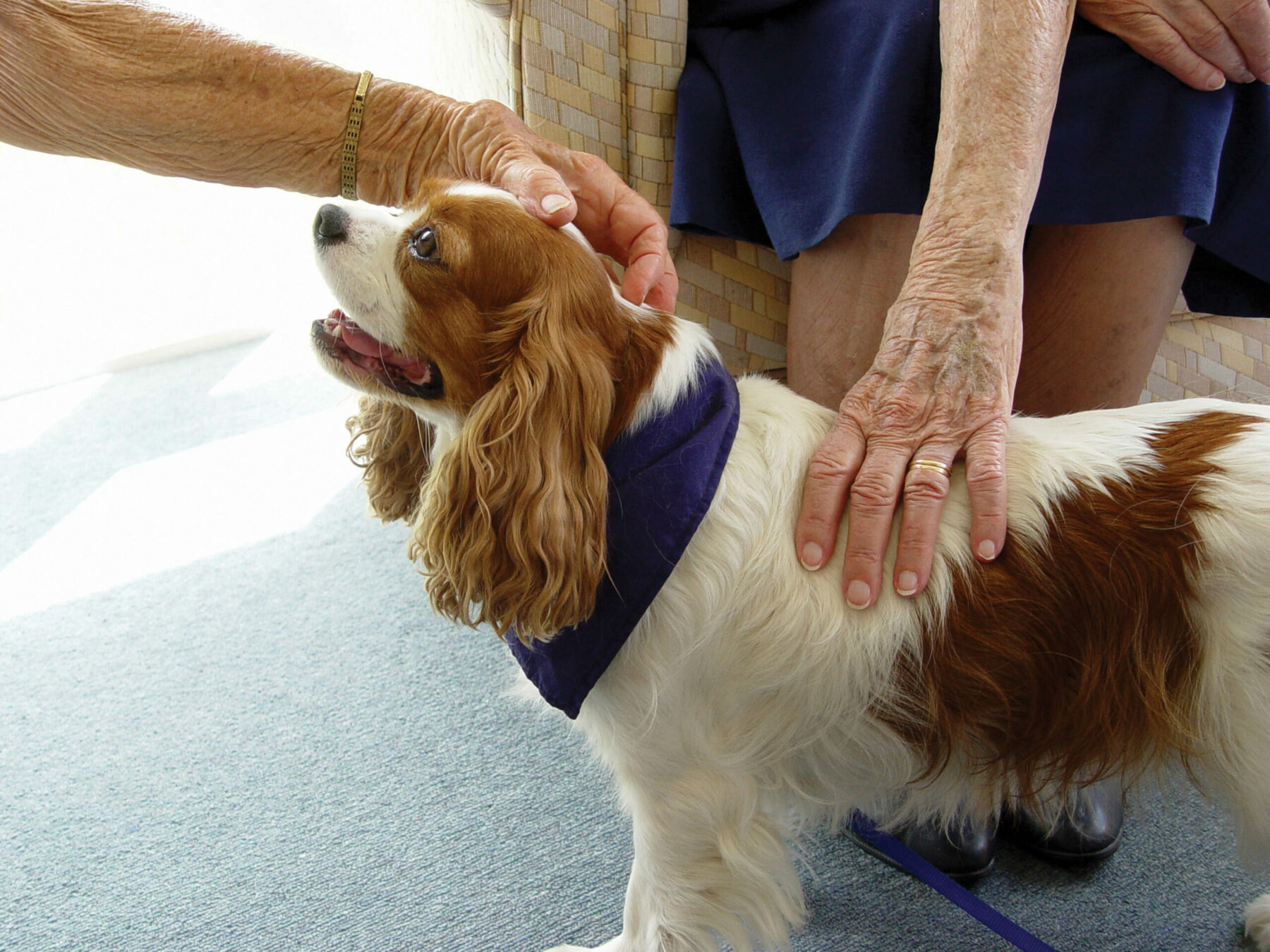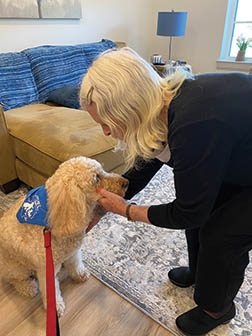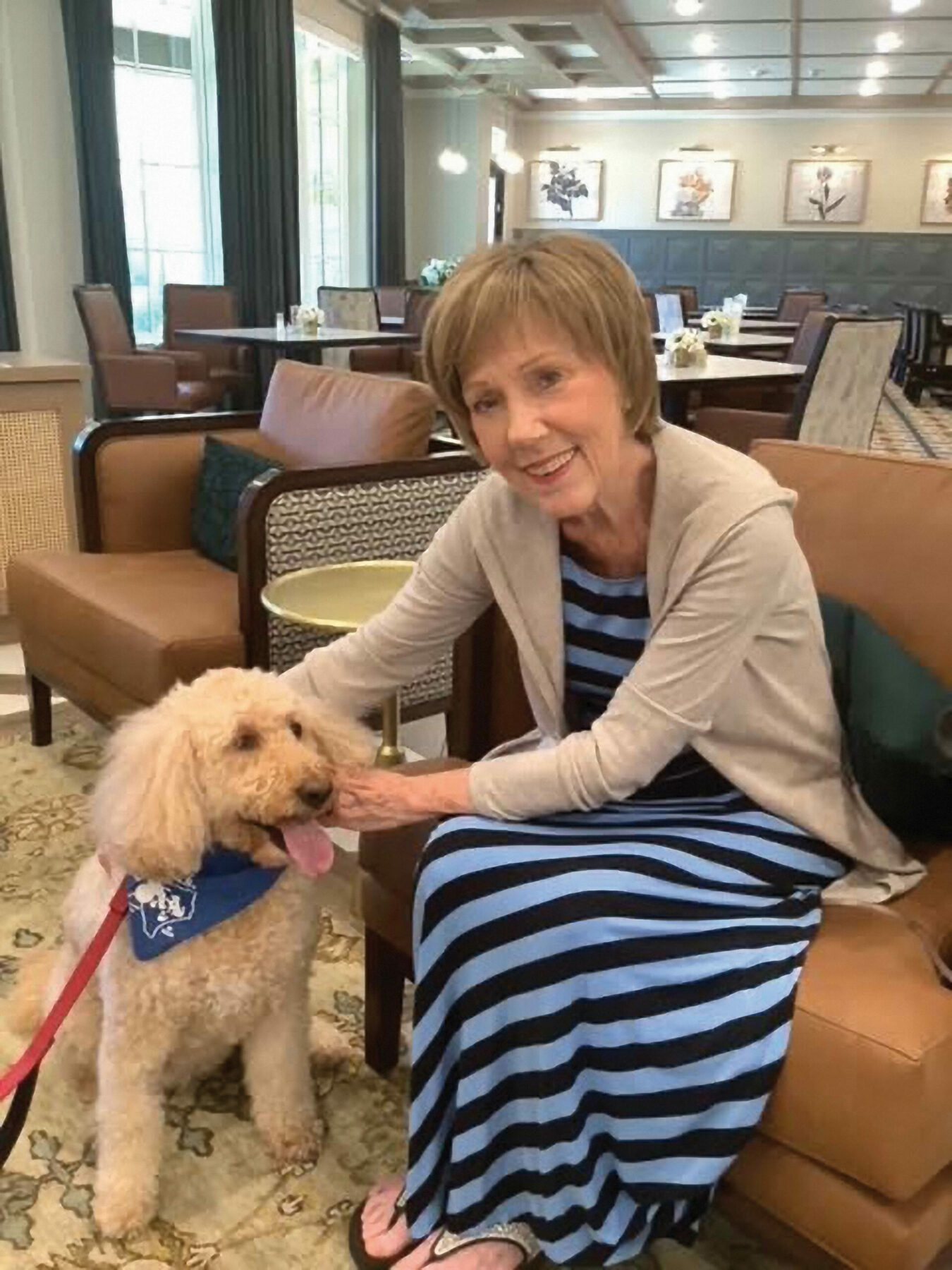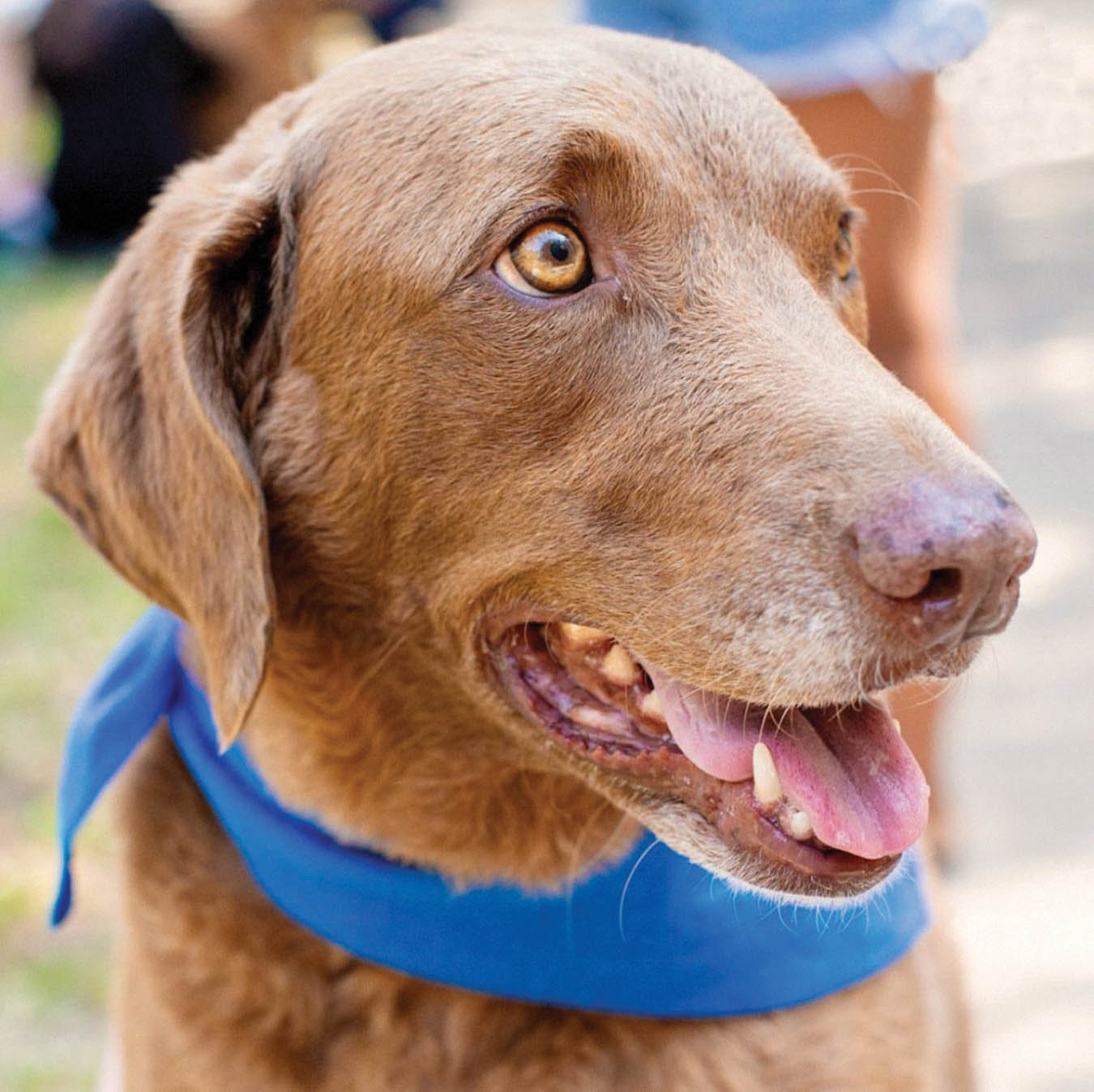Therapy Pet Pals of Texas Brings Pups to Institutionalized People

As a loving Chesapeake Bay Retriever named Daisy and a friendly, caring Goldendoodle named Lucy entered each room at the Longleaf Bee Cave assisted living facility, their warm demeanor and sweet disposition immediately lifted the spirits of the residents. The dogs, who were enjoying their time just as much as the residents, walked through each room, offering every individual their unconditional love. Smiles, laughter and joy spread through the building in a matter of seconds.
Lucy and Daisy are a part of Therapy Pet Pals of Texas, a nonprofit organization founded with the goal of improving the quality of life for all institutionalized people. The program, which was established in 1984, brings happiness and companionship to those who need it the most — the elderly, the mentally and physically challenged, and the terminally ill.

Photo courtesy of Therapy Pet Pals of Texas
Nancy Gray, the executive director at Therapy Pet Pals, has worked there for over 20 years and has experienced first-hand the effect these pets can have on someone’s mental health.
“Sometimes, especially going to a nursing home, you are their only visitor,” Gray says. “Many visitors see the dog and they want to hug them and hold onto them.”
The program first started when the founder, Kathryn Lashmit, was inspired after reading about an experimental animal-assisted therapy program. With a desire to make a real difference in the lives of institutionalized people, she decided to take her own puppy on a visit to a nursing home. Though the facility was hesitant to allow the visit, the staff soon watched as Lashmit’s puppy shared her affectionate love with all residents. This moment gave birth to Therapy Pet Pals.
Today, Therapy Pet Pals of Texas serves approximately 90 different facilities across Texas including hospitals, assisted living facilities, nursing homes, rehabilitation centers, My Health My Resources state facilities, and more. The nonprofit provides regular visits between pets (aka pet pals) and residents at these facilities to form and cultivate special bonds.

Photo courtesy of Longleaf Bee Cave
Fran Kaufman, a 75-year-old woman who lives at Longleaf Bee Cave assisted living facility, notes the positive impact that pet pal visits have made on her life.
“This is such a special program,” Kaufman says. “The dogs are like little children; they get to be like family.”
These visits are spearheaded by volunteers, who bring their own dog or cat to a facility that partners with the nonprofit. Each volunteer has the opportunity to choose which facilities they want to visit and depending on facility rules and procedures, visits can be scheduled accordingly. Volunteers and their pets will then walk around the facility and visit any resident who wishes to be greeted by a pet pal.
Kaufman, who moved to Austin earlier this year to be closer to family, had the opportunity to experience Therapy Pet Pals for the first time when she began living at Longleaf Bee Cave. She explains that seeing the dogs is a highlight of her day and that she, and those around her, have an immediate positive reaction.
“Some people don’t get very many visitors, so this program is really nice,” Kaufman says. “Especially if you had a bad day, it makes a big difference.”
Among the happiness and joy that pet pals bring to these facilities, they also help remind residents, including Kaufman, of pets they had to leave at home once they entered the facility. For Therapy Pet Pals, this is one of the many benefits of their program: validation therapy. For many individuals, the pet pals serve as an “ice breaker” for people to share stories about themselves or even pets they owned in the past.

Photo courtesy of Therapy Pet Pals of Texas
Other benefits of this program include physical therapy and mental therapy. Some individuals will exercise their afflicted limbs in order to reach and pet the dogs. For others, and for those who are less communicative, the pet pals provide companionship and allow people to be more open emotionally and socially. Additionally, this program can help alleviate profound loneliness and depression, enhance the patient’s quality of life, and provide happiness and companionship.
To provide more experiences like these, Therapy Pet Pals is always looking for new volunteers. However, Gray says recruiting volunteers can be a challenge.
“Our biggest issue is finding and keeping volunteers,” Gray says. “There are so many facilities now and everyone wants dogs to come.”
Those interested in becoming a volunteer can consult the Therapy Pet Pals of Texas website to find detailed information on how to begin the process. All dog breeds and cats are welcome to join the program as long as the animals are affectionate to strangers and can follow basic commands.
Upon becoming a volunteer, Therapy Pet Pals asks that you have a CGC, canine good citizen, which is a test that is nationally recognized by the American Kennel Club that teaches good manners to dogs and responsible ownership to owners. Once volunteers get a CGC, they can return to Therapy Pet Pals where they will be put in a qualifying class and partnered with a trainer at a healthcare facility. Training is held at both their Austin and Houston locations and once their training is complete, volunteers are free to take their pets to visit healthcare facilities on their own.
One of the greatest benefits of being a volunteer with pet pals is that they have the opportunity to improve someone’s day and contribute to someone’s mental well-being. Many volunteers share that this program is just as rewarding for residents as it is for them — while the pets are sharing their love, volunteers get to meet and talk with some amazing people. Gray notes that this is one of the best things about the Therapy Pet Pals of Texas program.
“When I walk out of (a healthcare facility) knowing that I just made someone’s day, I smile all the way home,” Gray says.






